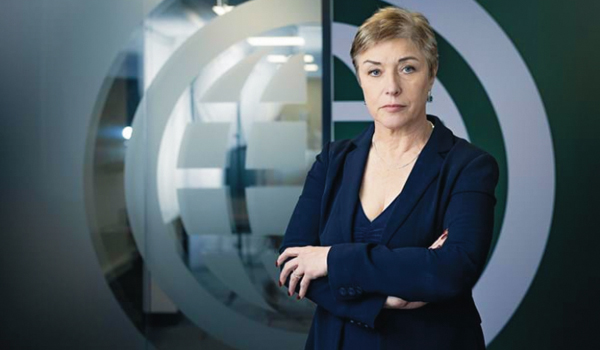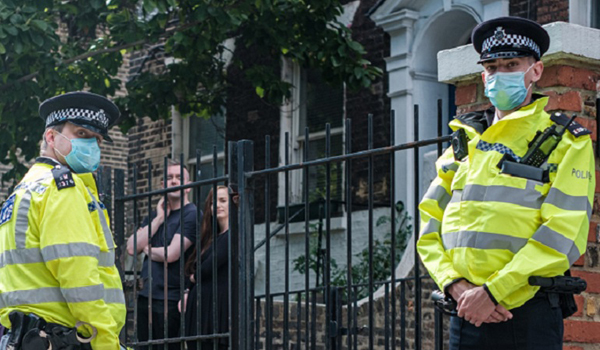What did we learn from the US Senate hearing over online harms?
In her latest blog, Susie Hargreaves OBE, chief executive officer of the Internet Watch Foundation, reflects on the US Senate Judiciary Committee hearing on ‘Big Tech and the Online Child Sexual Exploitation Crisis’, attended by the chief executives of five technology companies.
What we witnessed in the US congress on Wednesday (January 31) was nothing short of extraordinary. Bipartisan agreement breaking out among senators, as one by one they waited in turn for their eight minutes to eviscerate and berate the social media executives they had hauled before them, some reluctantly.
The room was packed with family members who had all lost loved ones, in part due to the role social media had played in their children’s lives. Boardroom decisions that put profit before all else can have real life, devastating consequences for the young people who use these platforms. It is time that lawmakers provide the right kind of motivation for the changes that are so desperately needed.
What came across most?
Anger, frustration, and an overwhelming sense that social media companies have failed to protect children – the controls they have in place simply aren’t good enough.
We also learned political pressure works.
In the week leading into the hearing, all the major platforms made major child safety announcements:
X (formerly Twitter) pledged to build a new trust and safety centre hiring over 100,000 moderators to deal with child sexual exploitation and abuse.
Meta announced that it would be rolling out new protections using client-side scanning technology – which it has previously said was impossible to do without breaking end-to-end encryption – to protect teens from seeing inappropriate content.
Snap became the first company to back the Kids Online Safety Act (KOSA).
Discord published an updated blog on how “safety by design is a core part of their business”.
Perhaps the most shocking moment in the hearing though, was provided courtesy of a line of questioning from Senator Ted Cruz, who asked Meta CEO Mark Zuckerberg why his organisation had displayed warning pages that told users they may be viewing child sexual abuse content and gave them either the option of getting help or continuing to view the content anyway.
An exasperated Senator Cruz said: “Mr Zuckerberg, what the hell were you thinking?”
Wednesday’s hearing brings into sharp focus the problems that organisations like ours, the Internet Watch Foundation (IWF), are dealing with every day.
A never-ending queue of reports, more and more child sexual abuse content, year on year, the problem growing in its complexity – partly owing to the decisions these companies are making.
At the IWF we believe that politicians must also take their share of responsibility too.
The US federal government has not passed any new online safety laws since the late 90s and early 2000s.
At the hearing, senators skirted around key issues and failed to hold the executives before them to account for statements like: “we are industry leaders in the number of reports we refer to NCMEC (National Centre for Missing and Exploited Children),” when at the same time, that same executive is pursuing a policy of implementing end-to-end encryption which will see most of those reports disappear.
There was also little challenge to company executives who claim “we don’t allow children to do such-and-such on our platform” – well, how do you know they are children unless you have age verification in place?
And there was absolutely no mention of the challenges that generative AI already poses for law enforcement, in telling the difference between a real child that needs safeguarding and one that has been computer generated.
So, what needs to be done?
Well, the below three actions would be a good start.
The Senate needs to continue to hold companies accountable for their actions – look at what can be done when company executives are hauled before a senate committee.
Senators need to get on with legislating: passing reforms that encourage the proactive detection and removal of content, rather than simply waiting to be notified. There have been 23 laws at state level attempting to provide improved online safety, the challenge to senators and US federal government is simple: can you get something done before the presidential election?
More focus on some of the major platform design issues coming down the track and implementing measures that might improve them.
As always, the takeaway lesson is that the law is failing to keep pace with technology.
But Wednesday’s hearing was encouraging, senators on a cross-party basis have lost patience with the situation and are urging action. Politics can drive change – now is the time to make those changes happen.
Originally published on the IWF website: https://www.iwf.org.uk/news-media/news/what-did-we-learn-from-the-us-senate-hearing-over-online-harms/






